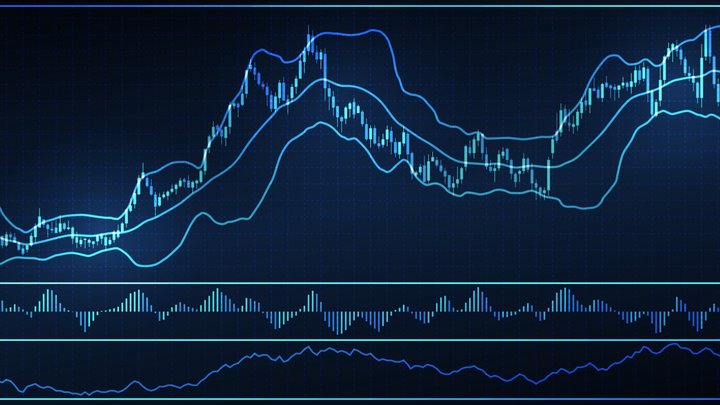
This article will show you how to place a Limit, Market, or Stop order to purchase stocks. If you're just starting out, you may also want to consider buying an Index fund. An Index fund, which invests in stocks in an index, will give you a portfolio with the best companies in the nation. By following these steps, you'll have the necessary knowledge to buy stocks with confidence.
Limit order
A limit order is an investment strategy where you purchase a set amount of stock for a fixed price. Limit orders will only execute if the price of the stock is lower than or equal to the price you have specified. Your order won't be executed if the stock price drops below the limit. Other orders may mean that the stock price could be higher or lower than the limit price. Limit orders offer the benefit of avoiding volatility in the market.
For example, imagine that you place a limit order for Apple stock and the price goes up from $190 to $210. However, you might not want to sell at the current price. To avoid selling at an excessive price, you can set a higher limit. However, in the event that Apple goes bankrupt you may be able buy the stock at an even higher price with a limit. This way, you will avoid missing out on a great opportunity.

Market order
Market orders are a popular method for buying stocks. It's not the best way to buy stocks, but it is useful in certain circumstances. This is especially useful when you are in a losing position, and don’t want to wait for the market to move in your favor. You can also use this strategy when you are using automated investment strategies or dollar-cost averaging. There are some risks to using a marketplace order.
The basic concept behind a market order is that the broker will execute your trade at the current market price. This means your order will get filled as quickly as possible, at the current price. If you wanted to purchase 100 shares of XYZ Inc. you would choose whatever price was available at the time. The market price will dictate the price that you pay.
Stop placing orders
A stop order for stocks can be a good way of minimizing your loss. But stop orders are not as secure as limit orders. Once you reach the stop price, your order will automatically turn into a market order. This allows you to have maximum control over your investment decisions. This type of order can also help you protect yourself against stock market moves that could be detrimental to your investment decisions. This way you can lower your risk and gain more control over your stock investment portfolio.
A stop order is not a limit order, but it does instruct the market to execute a buy or sell order if the stock reaches a set price. Because it limits your losses, a stop-order is an important tool to long-term investors. You should set a stop order at a price that you are comfortable with. Consult a financial advisor to determine the best option for you.

Index fund
If you're new to the stock market or just don't have the time to monitor your portfolio, index funds are a great choice. An index fund closely tracks the performance the S&P 500 (a popular stock market index). There are differences between index funds, and actively managed funds. Index funds don't have the same risk restrictions as actively managed funds, so you can choose to invest in one or both of them. You can also choose to invest in an index fund based only on one index, such the S&P 500.
Index funds can be used by novice investors without much hassle. You can decide how much money you want to invest each month and stick with that amount. You can find online compound interest calculators that will help you figure out how much you need to invest each monthly. Once you have determined how much money you can afford each month, it is time to prioritize your investments according to your retirement savings goals.
FAQ
What is an REIT?
An REIT (real estate investment trust) is an entity that has income-producing properties, such as apartments, shopping centers, office building, hotels, and industrial parks. They are publicly traded companies which pay dividends to shareholders rather than corporate taxes.
They are similar in nature to corporations except that they do not own any goods but property.
What is the purpose of the Securities and Exchange Commission
SEC regulates securities brokers, investment companies and securities exchanges. It also enforces federal securities law.
What are the advantages of owning stocks
Stocks are more volatile that bonds. If a company goes under, its shares' value will drop dramatically.
The share price can rise if a company expands.
In order to raise capital, companies usually issue new shares. This allows investors to purchase additional shares in the company.
Companies borrow money using debt finance. This gives them cheap credit and allows them grow faster.
A company that makes a good product is more likely to be bought by people. The stock will become more expensive as there is more demand.
As long as the company continues to produce products that people want, then the stock price should continue to increase.
What is the main difference between the stock exchange and the securities marketplace?
The whole set of companies that trade shares on an exchange is called the securities market. This includes stocks as well options, futures and other financial instruments. Stock markets can be divided into two groups: primary or secondary. Primary stock markets include large exchanges such as the NYSE (New York Stock Exchange) and NASDAQ (National Association of Securities Dealers Automated Quotations). Secondary stock markets are smaller exchanges where investors trade privately. These include OTC Bulletin Board Over-the-Counter (Pink Sheets) and Nasdaq ShortCap Market.
Stock markets are important because they provide a place where people can buy and sell shares of businesses. The value of shares depends on their price. New shares are issued to the public when a company goes public. Investors who purchase these newly issued shares receive dividends. Dividends are payments that a corporation makes to shareholders.
Stock markets are not only a place to buy and sell, but also serve as a tool of corporate governance. Boards of directors are elected by shareholders to oversee management. Managers are expected to follow ethical business practices by boards. If a board fails in this function, the government might step in to replace the board.
Statistics
- US resident who opens a new IBKR Pro individual or joint account receives a 0.25% rate reduction on margin loans. (nerdwallet.com)
- For instance, an individual or entity that owns 100,000 shares of a company with one million outstanding shares would have a 10% ownership stake. (investopedia.com)
- Our focus on Main Street investors reflects the fact that American households own $38 trillion worth of equities, more than 59 percent of the U.S. equity market either directly or indirectly through mutual funds, retirement accounts, and other investments. (sec.gov)
- Ratchet down that 10% if you don't yet have a healthy emergency fund and 10% to 15% of your income funneled into a retirement savings account. (nerdwallet.com)
External Links
How To
How to make a trading program
A trading plan helps you manage your money effectively. It will help you determine how much money is available and your goals.
Before you begin a trading account, you need to think about your goals. It may be to earn more, save money, or reduce your spending. You may decide to invest in stocks or bonds if you're trying to save money. You could save some interest or purchase a home if you are earning it. And if you want to spend less, perhaps you'd like to go on holiday or buy yourself something nice.
Once you have a clear idea of what you want with your money, it's time to determine how much you need to start. This depends on where your home is and whether you have loans or other debts. Consider how much income you have each month or week. Income is what you get after taxes.
Next, make sure you have enough cash to cover your expenses. These include rent, bills, food, travel expenses, and everything else that you might need to pay. All these things add up to your total monthly expenditure.
You will need to calculate how much money you have left at the end each month. This is your net discretionary income.
This information will help you make smarter decisions about how you spend your money.
Download one online to get started. You can also ask an expert in investing to help you build one.
Here's an example spreadsheet that you can open with Microsoft Excel.
This is a summary of all your income so far. You will notice that this includes your current balance in the bank and your investment portfolio.
Here's another example. This one was designed by a financial planner.
It will let you know how to calculate how much risk to take.
Do not try to predict the future. Instead, think about how you can make your money work for you today.